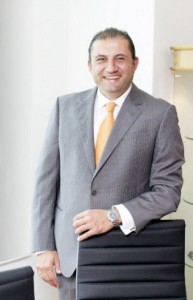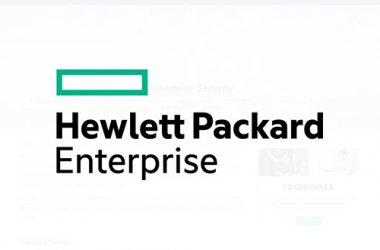 Having been in business for 10 years now, systems integrator EMW has weathered the economic crash to emerge as one of the Middle East’s top players. We speak with Serjios El-Hage, CEO, about the firm’s plans going forward.
Having been in business for 10 years now, systems integrator EMW has weathered the economic crash to emerge as one of the Middle East’s top players. We speak with Serjios El-Hage, CEO, about the firm’s plans going forward.
What would you highlight as some of the major achievements of EMW over the last year or so?
Last year, we were the five-year winner of best systems integrator, which is good. The other thing I would say is the employee retention. Employee retention with us is over 90 percent, which is great. This is our tenth year in the business. This is very satisfying because, you know, when you build a team, over the years, people change, people want to do this, but so far, we’ve been lucky that most of the team we built has been with us over all these years.
Also, which is most important, our customer base has expanded. Most of our business is geared towards enterprise. And over the last 12 months, we’ve been able to add more and more customers – high-end customers – especially in the media. We’ve had OSN, and we were able in the last 12 months to add Abu Dhabi Media Company, so we do a lot of business with them. As a matter of fact, our top three customers are in hospitality, which is basically how we founded the company, because we work very closely with the Jumeirah group. And then the second would be media, and the third would be education.
What kinds of trends are seeing over the regional IT landscape?
Obviously, you have to talk about the cloud. But the way we look at it is we have the pure-cloud model, where everything is hosted. However, being in this region, you’re kind of limited to certain service providers. And unless these certain providers open it up, or try to bring the hosting closer to them, it’s a pretty tough sell. So what we decided to do is we looked at kind of a hybrid model, where you have on-premise and off-premise. And most of the customers we have, the enterprise customers, they want us to do a study of how prepared they are in case the cloud services open up here, what sort of preparation they need to do to make sure all the services are within the cloud.
We’re focusing on call centres, contact centres, and another focus area is in managing mobile devices. We started with this about two and a half years ago. We were one of the first ones to introduce it to the region. And we see it more and more in enterprises now, especially from the CSO-level down, because they want to use their own device, whether they have an Apple iPad or a Samsung Note or Android, so it’s a different model.
Are you going for more public sector or private sector business?
To be honest, most of our business, like I mentioned, it’s kind of split. I would say you have the private sector, you have the public sector, and you have the sort of in between – the semi-government entities. For example, Abu Dhabi Media is something that’s semi-government. We work across the three markets, definitely, because we’re technology driven. And then you have another size of customers which have business environments, so we’re trying to cater more to the business community rather than the IT.
What do you see as the role of a good systems integrator in the Middle East? Is it different to other parts of the world?
To be honest, from the experience prior to opening EMW about 10 years ago, the role of a systems integrator used to be definitely vendor-agnostic. You go to a systems integrator, and you don’t ask him what sort of solutions, or what sort of vendors you work with. However, in this part of the world, you have to have synergies between yourself, the vendor and the customer. Some vendors are preferred by some customers. As a systems integrator, you have to focus on the customer needs first and foremost, and then from that you can decide what sort of vendor has the best solution that will fit into those customer requirements, out of the vendors that they want.
Now, when you get what’s called an approved vendor list, one vendor could have the best solution in that particular area. However it won’t be on the approved list, and then you’re not able to position it. We see a lot of this mainly in hospitality. You have the local brands, which are more flexible, and then you have the international brands, which have an approved vendor list which comes from their headquarters.
Not only do you have to be capable technically, you have to be able to speak to the vendors, you have to be able to speak to the business people, and you have to also have the right team in place. You can work with all these different stakeholders but if you can’t deliver – and consistently deliver – it’s not going to work. Sometimes there are exceptions, but most of the time, and luckily with our customers, we’ve kind of been able to show them both sides of the aisle, if you will, and then we will leave it up to them to choose which vendor or which solutions that they need to position there on the premise.
What’s your relationship with the vendors like?
This is also very important. Even if the vendor is listed, or an approved vendor, then depending on if you’ve been involved in the project early on or not, then they have another caveat, which is to be certified. If you’re certified, what level certification do you have? Currently, we hold the top certification with every vendor we work with. Once you empower your employees and you get them to a certain level of certification, automatically your certification with the vendor goes up. And we’ve been able to maintain this over the years as well. There are two aspects – you have to be able to maintain the certification from the technical level, but also from the revenue level.
What about managed services?
We have three or four bids on the table right now for managed services. If you asked me how long it’d take to get that off the ground 10 years ago, I’d probably say not at all. But the way things are going, with the market conditions now, with the cuts that are going on, and the level of expertise in the market, we see more of it coming on board.
Do you think the Middle East’s IT industry is still in growth mode?
If you look at two years ago versus now, there’s definitely a good potential. Most of the projects that were put on hold have been put back on. The sentiment, in general, has changed. There are a lot of announcements, and things are definitely on the upswing. Trying to keep up with it, getting the right people in place, trying to align yourself the right way, is what the next 12 to 24 months will see. As far as the strategy and all the reports you read – IDC, Gartner and all this – everybody is pretty much saying the same thing. If you don’t adapt to this new change, you’ll be left behind.
Do you work all across the Middle East, or is it just in the UAE?
Mostly we focus on the UAE. We have customers that are regional, and we support them from here. The reason why we do this is because they want to work with us, and they want one point of contact. And the other reason is, to expand outside, there are some legal issues. You have to get past a legal entity to the way you do business, with sponsorship and all this. We took the decision about three years ago just as the downturn was coming. We said, “Okay, maybe we should go back, regroup, refocus on the UAE.” And that’s what we’re doing and it’s been successful.
Are there any projects that you’re really proud of?
The masterpiece is the Rixos Hotel – that was the last one we’ve done – because we’ve done everything, from infrastructure. And it’s not a one-vendor solution. We had to work very closely with the Rixos Group to make sure that it’s been successful. The other one would obviously be Jumeirah. It is on the forefront of new technological developments all the time.
These are unique opportunities. Even though the revenue will not be substantial, but the uniqueness, and making sure the solution works, or gets results, especially when your customer is asking for it, that’s very satisfying.





